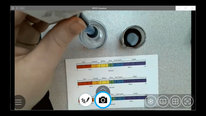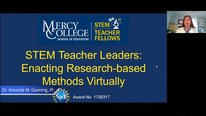- Mark Oursland
- Professor
- Building Capacity for Master Teacher Specialization in STEM Leadership
- http://www.cwu.edu/teachstem/stem-leadership-about
- Central Washington University
- Rachel George
- Advisor/Recruiter
- Building Capacity for Master Teacher Specialization in STEM Leadership
- http://www.cwu.edu/teachstem/stem-leadership-about
- Central Washington University
- Brent Hancock
- Assistant Professor
- Building Capacity for Master Teacher Specialization in STEM Leadership
- http://www.cwu.edu/teachstem/stem-leadership-about
- Central Washington University
- Emilie Hancock
- Assistant Professor
- Building Capacity for Master Teacher Specialization in STEM Leadership
- http://www.cwu.edu/teachstem/stem-leadership-about
- Central Washington University
- Allyson Rogan-Klyve
- Assistant Professor
- Building Capacity for Master Teacher Specialization in STEM Leadership
- http://www.cwu.edu/teachstem/stem-leadership-about
- Central Washington University
Public Discussion
Continue the discussion of this presentation on the Multiplex. Go to Multiplex











Brian Drayton
This sounds intriguing. Have any of your participating leaders-in-training begun serving in that capacity in schools or districts? What opportunities for their leadership exist in Washington schools?
Catherine Horn
Mark Oursland
Professor
We have just developed this program, but growing district level STEM leaders is the goal of the new program. Ask me in a couple of year, but partnership school districts as supportive in their teachers participating in this new program.
Christine Royce
Professor
Great job on the outreach for obtaining participation in the survey. The video highlighted some of the components that were deemed important such as authentic assessment and culturally responsive teaching. In administering the survey, were there any surprising aspects that showed up for preparing STEM leaders and were there any components that were already part of the undergraduate program that illustrated a sound foundation?
Catherine Horn
Mark Oursland
Professor
Great question, we included many STEM teaching and curriculum practices but projects, authentic assessment, and culturally responsive were identified as most important. Use of projects and culturally responsive teaching were viewed as the most important STEM practices. The component of authentic assessment was revealed during the follow-up interview and focus groups.
Catherine Horn
Moores Professor and Chair
Thanks, so much, for the introduction to this program. In building off the articulated goal of building "community STEM leaders," I'd love to hear one or two specific examples of how concepts of community and leadership are integrated into the program experiences and curriculum. I would also love to know more about how you scaffold the field experiences participants encounter. The video talks about "putting pedagogy and STEM content into the field." What does that look like in the earlier parts of the program and how does that evolve to that year-long field experience?
Thanks for your work!
Cathy
Mark Oursland
Professor
We plan to do this in a couple of ways. We have a course that runs twice a year. Each section of this course starts with visiting a STEM center or STEM industry and then STEM educators discuss and plan to partnership with the STEM center or STEM industry. Another way we promote community or field STEM projects is by linking pedagogy of STEM projects with development of STEM projects embedded in their communities.
Catherine Horn
Moores Professor and Chair
Thanks for this sharing! The work is so important.
cathy
Jill Berg
Leadership Coach, School Improvement Consultant & Author
It's exciting to see the strategic ways this project aims to tap teachers' expertise as an asset for improvement though state, university and partnerships. This leaves me with one question: Where are school administrators in this? Are there ways in which the program offers opportunities for principals and other school-level leaders to develop awareness of what their STEM teachers are learning, and possibly even to find ways to leverage that expertise at the school level? If principals and teacher leaders don't make deliberate efforts to lead in sync, they will often inadvertently work against each other.
Mark Oursland
Professor
School principals, superintendents, and curriculum/stem directors initially were asked to be partner schools and then during the project about a dozen school administrators participated in the survey and two were called on follow-up interviews. I agree school administrators are very important and what we found that they are usually on-board if STEM curriculum practices support the teachers and students in their school.